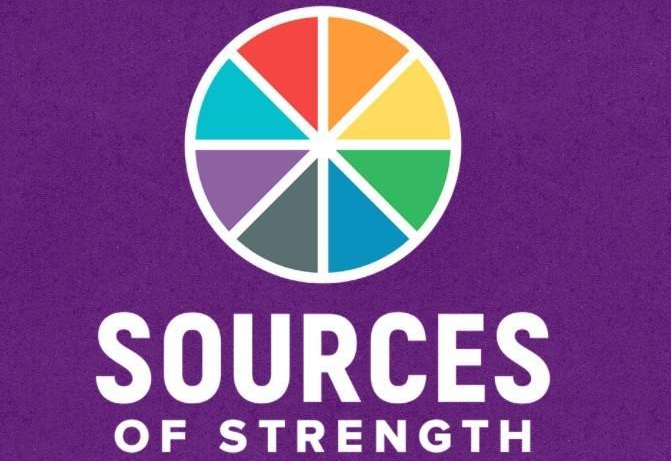SEL Curriculum
Pre K-12
Unit 1: SKILLS FOR LEARNING
Lesson 1: Learning to Listen
Lesson 2: Focusing Attention
Lesson 3: Following Directions
Lesson 4: Self-talk and Staying on Task
Lesson 5: Being Assertive
Unit 2: EMPATHY
Lesson 6: Feelings (1st Gr.: Identifying Feelings)
Lesson 7: More Feelings (1st Gr.: Looking for more Clues)
Lesson 8: Identifying Anger (1st Gr.: Similarities and Differences)
Lesson 9: Same or Different? (1st Gr. Feelings Change)
Lesson 10: Accidents
Lesson 11: Caring and Helping (1st Gr. Showing Care and concern)
Unit 3: EMOTION MANAGEMENT
Lesson 12: We Feel Feelings in our Bodies (1st Gr.: Identifying our own Feelings)
Lesson 13: Managing Frustration (1st Gr. Strong Feelings)
Lesson 14: Calming Down Strong Feelings (1st. Gr. Calming Down Anger)
Lesson 15: Handling Waiting (1st Gr.: Self talk for Calming Down)
Lesson 16: Managing Anger (1st Gr.: Managing Worry)
Lesson 18: Handling being Knocked Down
Unit 4: PROBLEM SOLVING
Lesson 19: Solving Problems (1st Gr.: Lesson 17 Solving Problems,pt. 1)
Lesson 20: Inviting to Play (1st Gr.: Lesson 18 Solving Problems,pt. 2)
Lesson 21: Fair ways to Play (1st Gr.: Lesson 19 Fair ways to Play)
Lesson 22: Having Fun with Friends (1st Gr.: Lesson 20 Inviting to Join in)
Lesson 23: Handling Having Things Taken Away (1st Gr.: Lesson 21 Handling name-calling)
Lesson 24: Handling Name-calling (1st Gr.: Lesson 22 Review)
Lesson 25: Review
Unit 1: SKILLS FOR LEARNING
Lesson 1: Being Respectful Learners
Lesson 2: Focusing Attention and Listening
Lesson 3: Using Self-Talk
Lesson 4: Being Assertive
Unit 2: EMPATHY
Lesson 5: Identifying Feelings
Lesson 6: Learning More about Feelings
Lesson 7: Feeling Confident
Lesson 8: Respecting Different Perspectives
Lesson 9: Showing Compassion
Lesson 10: Predicting Feelings
Unit 3: EMOTION MANAGEMENT
Lesson 11: Introducing Emotion Management
Lesson 12: Managing Embarrassment
Lesson 13: Handling Making Mistakes
Lesson 14: Managing Anxious Feelings
Lesson 15: Managing Anger
Lesson 16: Finishing Tasks
Unit 4: PROBLEM SOLVING
Lesson 17: Solving Problems Pt. 1
Lesson 18: Solving Problems Pt. 2
Lesson 19: Taking Responsibility
Lesson 20: Responding to Classroom Exclusion
Lesson 21: Playing Fairly on the Playground
Lesson 22: Review
Unit 1: SKILLS FOR LEARNING
Lesson 1: Being Respectful Learners
Lesson 2: Using Self-talk
Lesson 3: Being Assertive
Lesson 4: Planning to Learn
Unit 2: EMPATHY
Lesson 5: Identifying Others’ Feelings
Lesson 6: Understanding Perspectives
Lesson 7: Conflicting Feelings
Lesson 8: Accepting Differences
Lesson 9: Showing Compassion
Lesson 10: Making Friends
Unit 3: EMOTION MANAGEMENT
Lesson 11: Introducing Emotion Management
Lesson 12: Managing Test Anxiety
Lesson 13: Handling Accusations
Lesson 14: Managing Disappointment
Lesson 15: Managing Anger
Lesson 16: Managing Hurt Feelings
Unit 4: PROBLEM SOLVING
Lesson 17: Solving Problems Pt. 1
Lesson 18: Solving Problems Pt. 2
Lesson 19: Solving Classroom Problems
Lesson 20: Solving Peer Exclusion Problems
Lesson 21: Dealing with Negative Peer pressure
Lesson 22: Review
Unit 1: EMPATHY AND SKILLS FOR LEARNING
Lesson 1: Empathy and Respect
Lesson 2: Listening with Attention
Lesson 3: Being Assertive
Lesson 4: Respecting Similarities and Differences
Lesson 5: Understanding Complex Feelings
Lesson 6: Understanding Different Perspectives
Lesson 7: Conversation and Compliments
Lesson 8: Joining In
Lesson 9: Showing Compassion
Unit 2: EMOTION MANAGEMENT
Lesson 10: Introducing Emotion Management
Lesson 11: Managing Strong Feelings
Lesson 12: Calming Down Anger
Lesson 13: Managing Anxiety
Lesson 14: Avoiding Jumping to Conclusions
Lesson 15: Handling Put-Downs
Unit 3: PROBLEM SOLVING
Lesson 16: Solving Problems Pt. 1
Lesson 17: Solving Problems Pt. 2
Lesson 18: Making a Plan
Lesson 19: Solving Playground Problems
Lesson 20: Taking Responsibility for Your Actions
Lesson 21: Dealing with Peer Pressure
Lesson 22: Review
Unit 1: EMPATHY AND SKILLS FOR LEARNING
Lesson 1: Empathy and Respect
Lesson 2: Listening with Attention
Lesson 3: Being Assertive
Lesson 4: Predicting Feelings
Lesson 5: Taking Others’ Perspectives
Lesson 6: Accepting Differences
Lesson 7: Disagreeing Respectfully
Lesson 8: Responding with Compassion
Unit 2: EMOTION MANAGEMENT
Lesson 9: Introducing Emotion Management
Lesson 10: Calming down
Lesson 11: Managing Anxiety
Lesson 12: Managing Frustration
Lesson 13: Resisting Revenge
Lesson 14: Handling Put-Downs
Lesson 15: Avoiding Assumptions
Unit 3: PROBLEM SOLVING
Lesson 16: Solving Problems Pt. 1
Lesson 17: Solving Problems Pt. 2
Lesson 18: Making a Plan
Lesson 19: Seeking Help
Lesson 20: Dealing with Gossip
Lesson 21: Dealing with Peer Pressure
Lesson 22: Review
CSEFEL: Preschool
Second Step: K-5th Grade
Second Step: Grados K-5
Las lecciones en los menús desplegables a continuación representan el plan de estudios “Second Step” de DNUSD. Las lecciones en video han sido desarrolladas por nuestros consejeros escolares y están disponibles a través de Canvas. Comuníquese con su consejero / maestro individual de la escuela para preguntar cómo acceder a las lecciones en video para su estudiante.
Sources of Strength: 6th-12 Grades
“Sources of Strength is the first suicide prevention program involving peer leaders to enhance protective factors associated with reducing suicide at the school population level.”
American Journal of Public Health
“Power of You” Program: 6th Grade
El PDF Powerpoint a la derecha contiene el contenido de las 4 lecciones de la clase.
All 6th graders within the district participate in a Social Emotional Learning program entitled Power of You (POY) provided by two Ventura County SELPA Social Emotional Services Specialists. POY is both a Tier 1 and Tier 2 SEL support/intervention. This is a character education and social-emotional support program for our 6th grade students funded through the Mental Health Services Act grant. The program has two phases including 4 classroom lessons for all MUSD 6th grade students (Tier 1) and then small group sessions for those students identified by the Strengths and Difficulties Questionnaire as needing more support (Tier 2). Topics include respecting self and others, empathy, understanding feelings, coping skills and healthy problem solving. Ventura County SELPA clinicians will be leading the lessons and sessions while building the capacity of our MUSD staff to sustain this program beyond the 3-year grant.
Todos los estudiantes de sexto grado dentro del distrito participan en un programa de aprendizaje socioemocional titulado “Power of You” (POY) proporcionado por dos especialistas en servicios socioemocionales de SELPA del condado de Ventura. POY es un apoyo / intervención SEL de Nivel 1 y Nivel 2. Este es un programa de educación del carácter y apoyo socioemocional para nuestros estudiantes de sexto grado financiado a través de la subvención de la Ley de Servicios de Salud Mental. El programa tiene dos fases que incluyen 4 lecciones para todos los estudiantes de sexto grado de MUSD (Nivel 1) y luego sesiones de grupos pequeños para aquellos estudiantes identificados por el Cuestionario de Fortalezas y Dificultades que necesitan más apoyo (Nivel 2). Los temas incluyen el respeto a uno mismo y a los demás, empatía, comprensión de los sentimientos, habilidades de afrontamiento y resolución saludable de problemas. Los médicos de SELPA del condado de Ventura dirigirán las lecciones y sesiones mientras desarrollan la capacidad de nuestro personal de MUSD para sostener este programa más allá de la subvención de 3 años.



